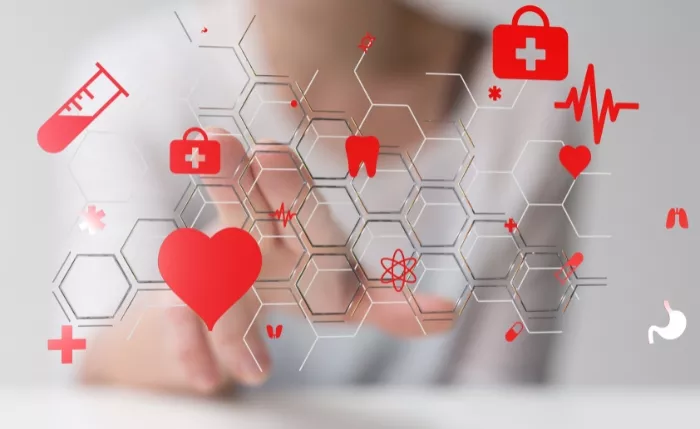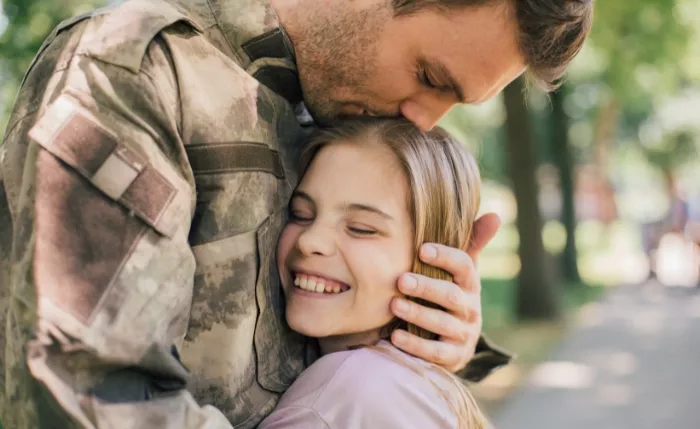Love and affection are two of the most powerful emotions we humans can experience. We may express them differently, but they form the basis of how we interact with others and show our care for one another. It can be hard to put into words what love and affection mean, but it is essential to understand them to build meaningful relationships. In this article, we aim to explore what love and affection truly are, why they matter, and how we can best express them.
Importance of love and affection in human relationships
Love and affection are essential in any human relationship. Without them, relationships become dry and lifeless, leaving both parties feeling disconnected and unfulfilled.
It is through love and affection that we can express our deepest feelings for one another. When we show love and affection for each other, it allows us to develop a sense of trust which helps to deepen the bond between two people. We can open ourselves up more easily when we know that our partner loves us unconditionally.
Love and affection bring out the best in us; they make us feel safe, secure, valued, cared for, and understood – all of which are necessary components to any strong relationship.
Types of Love and Affection
Romantic love

Romantic love is something that many people strive for and cherish. It is an emotion that can inspire happiness, joy, and contentment in those who experience it. Love and affection are two of the main components of romantic love, as it allows individuals to feel connected to one another and express their care for each other.
When two people are in a relationship where they both feel loved and accepted with unconditional support from their partner, it can be incredibly meaningful. Having someone to share moments with who deeply cares about you can bring immense joy and lift your spirits. The feeling that comes from being in a loving relationship transcends words – it’s something that must be experienced firsthand to fully understand its power.
When we think of love, the first thing that comes to mind is a romantic relationship between two people. However, there is another kind of love that can be just as powerful and meaningful: platonic love. Platonic love is a deep affection and connection between two individuals who are not romantically involved. This type of love goes beyond physical attraction and focuses on creating an emotional bond
Platonic Love

Platonic love is a type of love that is devoid of romantic or sexual desire. It is a deep and meaningful connection based on mutual respect, trust, and friendship. Platonic love is characterized by a deep emotional bond that is built on shared experiences, common interests, and a genuine appreciation for each other’s company.
Platonic love is a love that is driven by a deep sense of compassion, empathy, and understanding. It is a love that is not based on physical attraction or desire, but rather on the qualities and characteristics that make someone special and unique. Platonic love is about seeing the best in someone and being there for them through thick and thin.
For those who have experienced platonic love, it is a bond that is filled with warmth, comfort, and joy. It is a love that lifts the spirit and brightens the day. It is a love that is free from the complications and drama that often come with romantic love. It is a love that is pure, simple, and true.
Platonic love is a beautiful thing. It is a love that celebrates the beauty of friendship and the strength of emotional bonds. It is a love that transcends time, distance, and even differences. It is a love that is timeless, unwavering, and always there when you need it most.
Familial love

When it comes to familial love, there is nothing quite like the bond that is formed between family members. Love and affection play an integral role in cultivating strong relationships with those to who we are closest.
The love and affection that are shared by family members often transcend time and space. It endures all of life’s trials and tribulations, providing a source of warmth even during difficult times. It can be found in the gentle embrace of a hug or the meaningful glance that conveys understanding without words. Familial love has the power to make us feel safe, secure, and loved unconditionally – something that many people seek but never find elsewhere in their lives. It can bring us comfort when we are troubled, lift our spirits when we are down, and make us smile on even the gloomiest days.
Self-love

Self-love is a powerful emotion that can bring us immense joy and satisfaction. It is the act of valuing ourselves, our worth, and our place in this world. Self-love encourages us to appreciate and nurture the love and affection we have toward ourselves. When we are at peace with who we are and the decisions we make, it provides us with an inner sense of security that can be hard to find elsewhere.
It’s important to remember that self-love doesn’t mean selfishness; it means knowing your worth and having enough confidence in yourself to reach for success. Everyone deserves love and acceptance, especially themselves. When you accept yourself for who you are – flaws included – it leads to greater self-confidence and contentment in life.
The Science of Love and Affection

The role of hormones and neurotransmitters
Love and affection are some of the most powerful emotions humans have. They motivate us to be our best, strive for greatness, and to form meaningful relationships with others. But what is the science behind this emotion? The answer lies in hormones and neurotransmitters—the building blocks of love and affection that make it possible for us to experience these feelings.
Hormones play an important role in love and affection by helping regulate our emotions, moods, behavior, thought processes, physical characteristics, and overall health. Neurotransmitters act as messengers within the brain that help us recognize when we feel happy or content around others. Together these chemicals create a perfect storm of biology that helps us recognize when we feel connected with someone else on an emotional level.
How love and affection affect the brain
Love and affection have long been known to be powerful emotions that can drive many aspects of our lives. But what exactly are these feelings, and how do they affect the brain? Through a combination of research from psychology, neuroscience, anthropology, sociology, and other scientific fields, scientists have identified some of the ways love and affection influence our brains.
When we experience love and affection for another person, our brains release a combination of positive hormones such as oxytocin and dopamine. This triggers an overall feeling of reward and pleasure in us; however, it also increases levels of anxiety when faced with potential rejection or loss. Additionally, this same cocktail of hormones can cause us to become more attached to those we care about; forming strong bonds with them over time. Furthermore, these feelings may even promote better mental health by reducing stress-related symptoms such as depression or irritability.
The link between love and physical health
The science of love and affection is a deep-rooted concept that has been studied for centuries. But recently, the medical field has started to explore if there is a correlation between our emotional health, such as expressions of love, and physical well-being.
Research suggests that those who are more open to expressing their feelings of love have much higher levels of mental and physical health than those who keep their emotions under wraps. Studies also show that people with active social lives tend to have lower rates of depression, while people with fewer social connections experience more negative emotions.
Further research into this topic reveals that individuals who express affection regularly enjoy improved heart health, better immune system functioning, stronger bones, and even slow aging processes overall compared to those who don’t display as much emotion.
Expressing Love and Affection

Expressing love and affection is one of the most important things we can do in relationships. It helps create a bond between two people but also has a positive impact on both their mental and physical well-being. Whether it’s through words, physical gestures, or thoughtful gifts, there are numerous ways to show our loved ones that we care.
Showing someone you care about them doesn’t have to be expensive; small acts of kindness can go a long way in expressing your feelings for them. A hug, a kiss or even just holding hands can make all the difference when it comes to showing affection. Words are powerful too – telling your partner how much you love them or simply saying ‘I’m here for you’ can help strengthen the bond between you and reassure them how much they mean to you.
Verbal communication:
Verbal communication is a powerful tool that can be used to convey your feelings in a meaningful way. It allows us to express our emotions and connect with those we care about on a deeper level.
Words have the power to encourage, inspire and bring joy into our lives. Taking the time to say “I love you” or even just sharing kind words with someone can brighten their day and remind them that they are loved. When we use verbal communication it allows us to make sure those we care about feel appreciated, valued, and accepted for who they are.
Verbal communication can also help strengthen relationships by creating intimacy between two people.
Nonverbal communication
While we may use words to show our appreciation for someone, it’s often the nonverbal communication that makes the biggest impact. Through subtle gestures and body language, we can share feelings of care, admiration, and devotion in ways that go beyond words.
Nonverbal communication such as eye contact and physical touch are powerful means of expressing love and affection. Looking into another person’s eyes conveys strong emotions it’s been proven to make people feel more connected with one another during conversations. Similarly, holding hands or giving a hug creates an intimate connection between two people which can be incredibly comforting in times of stress or sadness.
Physical touch
When it comes to expressing love and affection, physical touch is one of the most powerful ways to communicate a heartfelt sentiment. Every human being needs and craves a connection with another person, whether it be through words or physical contact. Through physical touch, we can express our deepest emotions for the people in our lives who matter to us the most.
Sharing an embrace, holding hands, a pat on the back, or simply rubbing your partner’s arm can trigger a flood of emotions in an individual and help strengthen relationships between two people. It has been scientifically proven that physical contact releases oxytocin, also known as “the cuddle hormone” which helps create feelings of trust and security within us all. Therefore it is no surprise why expressing love and affection through physical touch can be such an important factor when building strong bonds with those around you.
Acts of service
Love and affection can be expressed in so many ways, but one of the most meaningful is through acts of service. Doing the dishes, cooking a meal, or running errands are all small but powerful gestures that show how much you care for your partner.
These seemingly ordinary tasks become incredibly special when done out of love and selflessness. Taking on these responsibilities not only shows that you care about your partner’s well-being, but also demonstrates an understanding of what they need from you. This kind of kindness and thoughtfulness can make someone feel valued, seen, and appreciated in a way words cannot do justice to.
Serving your partner in any capacity is an act that speaks volumes more than just saying “I love you”. It’s a subtle reminder every single day that comes from the heart and helps build strong relationships over time.
Quality time
Expressing love and affection through quality time is an effective way to show someone that they are important and valued. Quality time spent with a special someone can be an opportunity to build stronger relationships, strengthen bonds, and create lasting memories. Whether it’s spending an entire day or just a few hours together, taking the time to truly listen to each other will help foster connection and understanding.
By making the effort to spend quality time together, you can show your loved one how much they mean to you without saying a word. From going on romantic dates or sharing meaningful conversations over dinner, these intimate moments offer a chance for couples to reconnect on an emotional level. By being present at the moment and showing genuine interest in what your partner has to say, you can express your love and affection in ways that words simply cannot describe.
It’s important to remember that everyone expresses and receives love and affection differently, known as “love languages” and understanding one’s own and partner’s love language can help to understand how to express and receive love and affection more effectively.
The Challenges of Love and Affection
Jealousy and envy
Nothing can be as rewarding as being in love and knowing that you are loved. But, this is not always the case. Love and affection come with their own unique set of challenges, such as jealousy and envy. While these feelings can be normal to some extent, they can get out of hand if left unchecked.
These emotions often stem from a feeling of insecurity or lack of trust in your partner’s commitment to the relationship. Jealousy can lead to possessive behavior which can take away from a healthy relationship dynamic. Envy may lead one partner to constantly compare themselves to others to remain “worthy” of love and attention from the other partner. Both jealousy and envy have the potential for causing tension between partners, ultimately leading them down a path toward separation rather than harmony.
Losing love and affection
Losing love and affection is a heartbreaking experience, but it is something that many of us may face at some point in our lives. Whether it be the loss of a romantic partner, the death of a loved one, or a change in circumstances that causes your relationship to drift apart, it can be an extremely difficult and painful journey.
The pain of losing someone you care about can run deep and haunt you for weeks, months, or even years afterward. It often affects our ability to trust and open up to other people moving forward. We may find ourselves stuck in feelings of sadness, guilt, or regret as we try to process such a huge loss in our life.
Difficulty expressing love and affection
When it comes to love and affection, many of us take them for granted. We often do not realize that some people may have difficulty expressing their love and affection, due to a variety of reasons. Those reasons can include experiences from the past, or even cultural background, or unique personality traits.
For those who may have trouble showing love and affection due to any of these factors, counseling may be an extremely beneficial way for them to learn how to express themselves. It is important for everyone to feel loved and appreciated by friends, family members, and partners, so finding ways to open up in these areas can greatly improve mental health. Counseling offers an environment where individuals can explore why they are having difficulties with expressing their feelings of love and affection – with the help of a professional therapist – as well as strategies on how they can better communicate such feelings in the future.
Navigating different love languages
When it comes to relationships, it can be a challenge to find common ground with someone who has different love languages. Love and affection are the most fundamental building blocks of any healthy relationship. While some people may feel loved by physical touch, others might prefer words of affirmation or quality time together. Knowing how to express and receive love in a way that works for both partners is essential to create strong connections and lasting bonds between two people.
For couples to make their relationship work, they must be willing to learn each other’s love language and find out what makes them feel the most special. They should also take the time to appreciate how their partner expresses their affections differently from themselves so that no one feels neglected or misunderstood.
Conclusion
In conclusion, love and affection are integral parts of human emotions and relationships. They provide a sense of security, belonging, and connection to others, and are essential for the development and maintenance of healthy relationships. Love comes in many forms, from romantic love to platonic love, familial love, and self-love. The science of love and affection reveals the complex interplay of hormones and neurotransmitters that contribute to the pleasurable and bonding feelings associated with love and affection.
Expressing love and affection can be done through verbal communication, nonverbal communication, physical touch, acts of service, and quality time. While love and affection can have their challenges, such as jealousy, envy, difficulty expressing love and affection, and navigating different love languages, it is important to communicate openly and honestly with loved ones and to be open to learning and adapting to different ways of expressing love and affection. Ultimately, love and affection are vital for a happy and fulfilling life.
FAQ:
Q1. What are Love and Affection?
The Definition of Love and Affection
Love is defined as a strong feeling of affection or attachment towards someone. It is an intense emotion that is characterized by feelings of tenderness, devotion, and compassion. Affection, on the other hand, is a more gentle feeling of fondness or tenderness towards someone. It is a softer form of love that is often expressed through physical gestures, such as hugs or cuddles, as well as through words and actions.
Q2. The Difference between Love and Affection?
While love and affection may seem similar, they are different emotions. Love is more intense and profound, while affection is more gentle and nurturing. Love is characterized by deep feelings of devotion and commitment, while affection is more about showing care and appreciation.
Q3. Why are Love and Affection Important?
Love and Affection in Relationships
Love and affection are essential in any relationship, as they help to build trust and create a strong bond between partners. When we show love and affection to our partners, it makes them feel valued and appreciated, which in turn strengthens the relationship. Love and affection also provide a sense of security and comfort, which is essential for building a healthy and happy relationship.
Q4. How to Show Love and Affection?
Physical Gestures of Love and Affection Physical gestures of love and affection are a great way to show someone that we care. Some examples of physical gestures of love and affection include:
- Hugs
- Cuddles
- Holding hands
- Kisses
- Giving gifts
Q5. What are the most used Words for Love and Affection?
Words of love and affection are also important in showing someone that we care. Some examples of words of love and affection include:
- I love you
- You mean the world to me
- You’re my best friend
- I appreciate you
- I’m grateful to you







